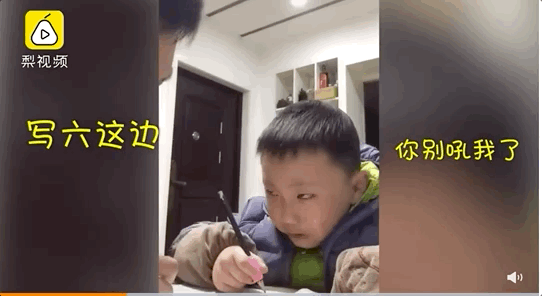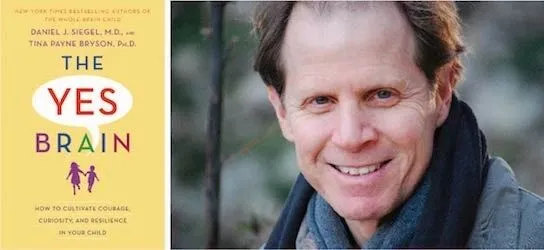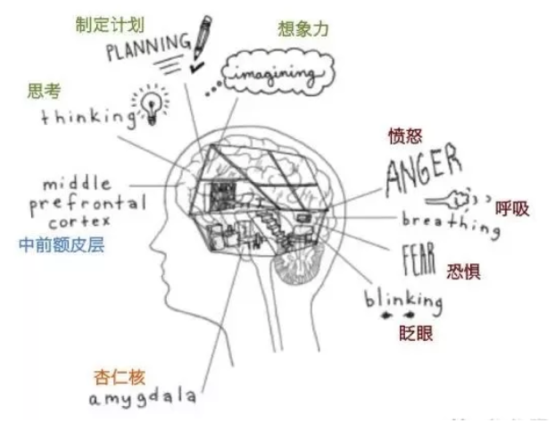
We posted an article a few days ago. Yes, I am the mother who loves to yell at children! What’s wrong? , which aroused the resonance of many parents, who directly expressed their hearts.
But at the same time, some parents and friends also raised questions: One of the important reasons why I can’t help yelling at children is that children always make the same mistakes. ! How to do?
In fact, we can always see similar comments under many articles:



In the end why, after saying it hundreds of times, the child will not change after repeated teachings, knowingly committing a crime? In such a situation, in addition to being angry and worried, what else can parents do to effectively solve the problem?
In today’s article, let’s take a closer look at what the child’s little head is thinking.
 Repeated teachings do not change, is it a knowing crime or something else?
Repeated teachings do not change, is it a knowing crime or something else?
Many people will be indignant when they see that their children make mistakes again and again, “Why is it so short of memory”!
But in fact, the reason behind the child’s “knowingly committing a crime” is different from what we think.
In “Social Development of Children Aged 0-12”, three major reasons for children’s mistakes are summarized [1] :
1. Children are unfamiliar with social and family rules . It is basically impossible to ask children to do things according to the standards of adults.
2. It is a very complicated process for children to learn the rules , and they need to be constantly guided and practiced. Among them, teaching by words and deeds is very important.
3. When a child makes a mistake, the attitude of the parents determines the degree of correction. From the parents’ point of view, children’s mistakes are foolish, but from the children’s point of view, their own mistakes are determined by their own cognitive limitations .
1. Can’t do it: immature brain development is at fault
Children often make mistakes not because they don’t want to change it, but because they can’t do it.
Because the cerebral cortex is not yet fully developed, and the functional rooms such as “reason, logic, and judgment” have not been built, so when thinking and acting, they do not have the ability to think deeply and consider cause and effect.
For example, we told the child to “eat well, don’t throw it on the table”, but he still fell rice grains everywhere, and accidentally knocked over the bowl when he turned around, making a mess all over the floor. At this time, I couldn’t bear it anymore, and I shouted respectfully at first: Look at you, why do you keep saying this! “

 Figure source丨Figure insect creativity
Figure source丨Figure insect creativity
But in fact, when a child eats rice grains, it may be because the wrist strength, fine movement of fingers, and hand-mouth coordination still need to be trained; knocking over the bowl and falling to the ground is just because he just turned his head and wanted to call you, but the brain’s judgment of space The ability is not enough to judge that the arm will affect the bowl on the table when turning; after you have finished training, he will be “the same” next time, because these cognitions and abilities of his need long-term training to be able to Master slowly. “Eat well” is easy to say, but for them, it is really difficult to do.
It’s not that he doesn’t change, but that we haven’t given enough time to grow. We are too eager for him to “immediately change”, but ignore a two or three-year-old baby – “limited ability”.
2. Difficult to do: behavior does not match adult expectations
Many times, children appear to be “knowingly committing crimes”, but behind the scenes are parents asking too much.
We often hope that children will be obedient, sit quietly when they go out as a guest, not be greedy when they see snacks, not make a fuss when they see toys, remember words when they memorize them, and write well when they speak and practice… But if you think about it from a different angle If you think about it, you know it’s impossible!
When adults say good about quitting late-night snacks, they want to order it late at night; when they say good about quitting late-night snacks, they just can’t put down their mobile phones; when they say good about quitting games, they can’t help but turn it on; when they say good about quitting games, they can’t help but turn it on; Pay attention to brush up the circle of friends again…
In the face of temptation, it is still difficult for adults to control themselves, not to mention how old a child is?

 Figure source丨Figure insect creativity
Figure source丨Figure insect creativity
Self-discipline is an ability that requires lifelong learning, and children who are just starting out need a long period of practice.
Researchers at Carnegie Mellon University and the University of Pittsburgh found that humans have limitations in their ability to learn, and the brain is accustomed to inefficiently reusing neurons for a short period of time to learn, rather than starting all over again. [2]
A simple understanding is that the brain’s cognition and behavior of known things have repetitive inertia. Even if you know it is wrong, when you encounter a similar situation, you will still subconsciously give priority to dealing with it in a familiar way.
Therefore, self-discipline is to defeat bad habits after a long-term struggle with inferiority, let good habits prevail, and become the new “inertia” in the brain. This is not something that can be achieved overnight, it requires long-term, repeated, deliberate practice. Just like a child takes off a diaper, learns to hold back urine, and learns to go to the toilet independently, the sphincter must be practiced slowly to be able to use it freely.
This process is “useless yelling”, and the child will not suddenly grow up overnight because of the parent’s scolding. In addition to letting go of unrealistic expectations, correct guidance, and repeated practice, all parents can do is to wait patiently.
3. Don’t want to do it: “Exceeding Limit Effect” Triggers Brain Escape Mechanism
If you look closely, you will find that when your child makes a mistake, the more you yell at him, the more wrong he is.
Because she looks like a child who is listening to you with an innocent face, but what she actually thinks in her heart is how to “run quickly and save your life”.
The “55-38-7 rule” proposed by psychology professor Albert Mehrabian states that the communication between people, the perceived information:
- 55% through “seeing”, such as our gestures, expressions, attitudes, body language, etc.;
- 38% is through “listening”, such as the intonation, tone, speed, volume, etc. of our speech;
- Only 7%, is the specific speech content.
When the brain encounters a sudden crisis, three phenomena will appear: attack, escape, and freeze. [2]
When the parents scold, the baby stutters; the parents always say, the baby turns a deaf ear; the parents say it every day, and eventually the baby can’t stand it and resists by talking back. Escape, resistance, and rebellion are all ways children use to escape fear and threats.

 Image source丨Network
Image source丨Network
This is also why the parents have said the big truth 999 times, and the child still “remembers to eat and not to beat”, because those big principles that follow the teachings are like wind in the ears, and have never been blown into the children’s hearts.
Moreover, psychology has also summarized a phenomenon called “exceeding limit effect”: it refers to a psychological phenomenon that causes extreme psychological impatience or reversal because of too much stimulation, too strong or too long acting time. [3]
When parents keep nagging, scolding, saying the same thing about the same thing over and over again, the time will run out and it will become ineffective. The child has also changed from initial guilt to impatience, and even has a rebellious mentality of “the more I refuse to do it, the more I want to do it”.
In the end, it’s not that the child “can’t change”, but “doesn’t want to change”.

Parents who want their children to “make mistakes when they know they are wrong” must first “make mistakes when they are wrong”
To the 3-year-old baby, you shouted – “It is said that the socket is dangerous, don’t touch it, why don’t you listen?”
To the 6-year-old baby, you shouted – “Hurry up, hurry up, you’re going to be late! Why do you have to remind me to go to school every day!”
To the 9-year-old baby, you scold—— “How many times have I said this kind of question, why is it still wrong, wrong, wrong!”
I was so angry that I never listened to what I said, but I still had to say “you”. Many parents have misunderstandings, thinking that “if I don’t talk about it, TA will not behave well”.
But when children make mistakes, we choose to “make mistakes” first, and stand on the same front as children to face mistakes, which may surprise you even more.
1. 0-3 years old, not demanding perfection, less reasoning, more demonstration
What kind of bad intentions can a little kid have? Most of the mistakes in life are due to the brain’s inability to recognize and predict the consequences of actions; every “trick-or-treasure” behavior that persists is mostly trying to understand the relationship between actions and results through constant attempts.
At this moment, the child’s brain is trying to bloom the flower of “logical thinking” in the soil of “trial and error”.
What we need to do is not to reprimand children “what not to do”, but directly tell them “what can be done”.

 Figure source丨Figure insect creativity
Figure source丨Figure insect creativity
Children at this stage can’t understand the big truth, but they can imitate you and give the child correct guidance and demonstration, so that when the child “makes a mistake” there is a way to go, and he will obediently “walk” with you.
2, 3-6 years old, trial and error is also growth, give space and time
The trouble has already made the child’s heart uneasy, and we don’t need our reprimand, the child’s inner emotions have already turned upside down. At this moment, there is no need to add fuel to the fire. Children who are deeply involved in emotional vortex, it is difficult to hear the big truth. On the contrary, if you strike and reprimand at this moment, it will only make the child escape and rebel.
Therefore, instead of ranting and reprimanding, it is better to help the child to calm down first, give him a comforting hug, and let him feel seen and accepted – it doesn’t matter, parents will accompany you to face it.
On the same front, children can eliminate fear and hostility. At the same time, in the face of mistakes, it can help children to establish a belief that they are not afraid of mistakes, my parents believe that I can do it well.
Don’t be afraid of making mistakes, dare to admit when you’re wrong, and calm down and change slowly after admitting it.
Make connections first, then influence behavior. When parents can give understanding, allow children to try and make mistakes, and support them in finding solutions to problems in practice, you will find that children are more willing to obey and more motivated to correct.
“If you make a mistake, you must correct it, and your parents are doing it for your own good.” You shouldn’t think about it, you should let the child think about it.
3. Above the age of 6, establish an “open brain” to deal with mistakes
The world-renowned brain scientist Daniel Siegel once conducted an experiment in his speech:
Ask the audience to close their eyes and say “No” 7 times in their hearts solemnly; then, after two minutes, close their eyes and gently recite “Yes” in their hearts 7 times; Variety.
As a result, audience feedback was:
- When the “no” is repeated repeatedly, the mood will be tense, depressed, resisted, and upset;
- When the “yes” is repeated over and over again, the mind will feel calm, relaxed, happy, and at ease.

Therefore, in the book “How to Make Children Conscious and Active”, he used “upstairs” and “downstairs” to make a vivid metaphor:
“Downstairs” means “lower brain”, also known as “defensive brain”. It is an instinctive state of the brain that reverts to a primitive, unthinking fight, flight, or freeze in the face of threats and attacks.
“Upstairs” means “upper brain” and stands for the open brain. It consists of the cerebral cortex, which connects various brain areas and is responsible for cognitive activities responsible for executive functions, such as higher-order thinking, curiosity, insight, empathy, and problem-solving skills. Scientists call it the “social engagement system.” Only when the upper brain is functioning can we think from multiple perspectives and openly look for ways to solve problems. [4]

 Photo Source丨How to Make Children Conscious and Active
Photo Source丨How to Make Children Conscious and Active
In childhood, the child’s “downstairs brain” dominates. When the child is repeatedly suppressed and blamed, the defensive brain will be activated, making their thinking tense at all times, so as to resist and rebellious behavior, and can no longer think rationally. , remember the lesson.
What we need to do is to help children build up the “upstairs brain”, link each brain area with each other, and learn the habit of thinking from multiple perspectives and looking for solutions to problems openly.
That is to say, in the face of mistakes, parents should give more positive guidance, rather than negative pressure. When a child hears the positive responses of “You can,” “Let’s try,” and “I believe in you,” the brain is more relaxed and more energetic to think about how to deal with the problem.
“Children’s Educational Psychology” pointed out: “It is opinions rather than objective facts that determine the direction of action.” [5]
It is through the mouths of the parents that the child establishes a sense of self-identity. Therefore, the affirmation and encouragement of parents will make children have a positive inner drive and desire to do better.
The so-called education is not to prevent children from making mistakes, but to allow children to grow through mistakes. Instead of complaining about your child’s persistence, let your child learn to look at mistakes correctly and build a “growth mindset.”

Every child who makes mistakes, makes corrections, makes mistakes again, and insists on making corrections hides a little seed of self-confidence, courage and optimism in their hearts .
And every indomitable little seed wants to germinate, it is inseparable from the watering of parents “Yes, you can”. 

Editor丨Antelope, human cub observer. References丨
[1] “Social Development of Children Aged 0-12” (US) Marjorie J. Kostelnik, China Light Industry Press, February 2018
[2] “Introduction to Psychology: 50 Interesting Psychological Effects” Mingdao, Xiyuan Publishing House, August 2020
[3] “Neural constraints on learning”
https://ift.tt/hkISuy8
[4] How to Make Children Conscious and Active
[5] “Children’s Educational Psychology” by Alfred Adler, translated by Wei Qichang, Taihai Publishing House, September 2021
The source of the title map丨
figure bug
Related Reading
- How to cultivate children’s inner drive? The practice in Peppa Pig is a textbook!
- How to destroy your child’s independence with your own hands?
- “If I hadn’t been hitting you all the time, you would have been floating! Can you still have today’s success?”
- First-line report of the old mother: the first year of double reduction, my confusion, self-help and change
✍️ |Author Recruitment & Submission| Backstage reply to “Submission”, check details Submission email: [email protected] 
This article is reproduced from: http://www.guokr.com/article/462777/
This site is for inclusion only, and the copyright belongs to the original author.